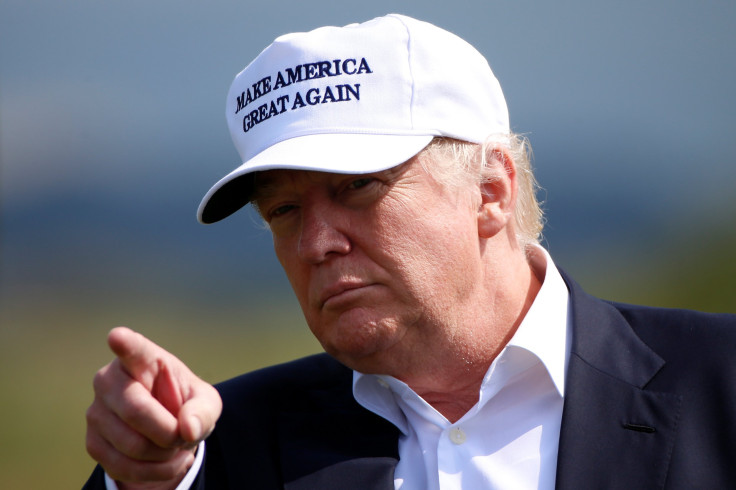Money In Politics: Did Donald Trump Break Campaign Finance Rules? Group Files Complaint Over Allegations Of Fundraising Abroad

Two good-government organizations filed a joint complaint against Donald Trump's presidential campaign Wednesday, alleging that Trump violated federal election law by soliciting campaign donations from foreign nationals.
The Campaign Legal Center and Democracy 21 submitted their complaint to the Federal Election Commission after politicians in several other countries said they had received emails asking them to donate to the Trump campaign. It is illegal for U.S. political candidates to solicit (or accept) donations from foreign nationals.
Democracy 21 President Fred Wertheimer said in a statement accompanying the FEC complaint that the emails were "a strange and unique development that we have not seen before in campaign fundraising."
"The FEC needs to investigate how many of these illegal solicitations were sent, to whom they were sent, whether any illegal foreign contributions have been received and, if so, whether the contributions have been returned," Wertheimer said.
Trump has yet to confirm or deny whether the fundraising emails came from his campaign. A representative did not reply to multiple requests for comment. But members of parliaments in Britain, Australia, Finland, Denmark and Iceland all say they've received trump fundraising solicitations. Most recently, former Canadian Prime Minister Kim Campbell said Trump had emailed her asking for a donation.
Rec'd a fundraising email from Trump campaign! Says it is their first. Aside from fact I am Cdn, clearly they don't follow me on Twitter!1/2
— Kim Campbell (@AKimCampbell) June 21, 2016
Oddly, most of the emails appear to have been received by politicians who are unlikely to support Trump. For example, several emails were sent to members of the Scottish National Party. Although Trump publicly applauded Britain's vote to leave the European Union, the SNP and a majority of Scottish voters strongly opposed it.
That's one reason why Republican strategist Trace Anderson, president and founder of CFB Strategies, told International Business Times that he doubts the Trump campaign is guilty of any wrongdoing in this case.
"This, to me, says somebody is playing a practical joke," said Anderson. "That happens to campaigns all the time."
Anderson worked for U.S. Sen. Ted Cruz's campaign during the 2016 Republican primaries and told IBT he still isn't a fan of Trump. But he also said the likeliest scenario is that some practical joker simply visited the Trump campaign's website and entered in the email addresses for various foreign politicos.
Anderson noted that many of the emails appear to have been sent to publicly listed professional addresses, rather than to private email accounts.
"I think the big tell is, who uses a dot-gov email address?" said Anderson.
George Washington University professor and fundraising professional Nancy Bocskor raised another possibility to IBT.
"All campaigns rent potential donor lists from vendors," she said in an email. There is no such thing as a rented email list that is "100 percent clean and accurate." It's at least possible that the fundraising pitches could have been sent due to a faulty list.
"This happens to all campaigns; Trump just happens to be a lightning rod that has garnered this attention," said Bocskor.
© Copyright IBTimes 2024. All rights reserved.






















